Just like American cats, Japanese cats frequently eat butt for breakfast.
During the day, we stopped by a shop called Country Cat. Strangely, we couldn’t find any butt licking inside. But I suppose we could have brought our own.
Many of Hiroshima’s streetcars are antiques!
In fact, streetcars in Hiroshima are part of the city’s modern iconography.
That evening we went to the Hiroshima Station to catch a train to Uno.
Apparently, if you’re a “bakery-sandwich-onigiri,” you have to drink beer here.
Hisachan and I purchased our train tickets for the town of Uno in Okoyama prefecture where we were to visit Mikichan, one of Hisako’s childhood friends, and a member of Hisachan’s circle called “Hiroshima Coop.”
The train station was crowded with people returning to work after the holiday.
We rode the train on into the night, and at length arrived in Uno. It was dark, cold, and smelled of the sea.
We met Mikichan, and she ushered us into the quaint interior of her cafe.
Behind the counter, a door of diminutive proportions separated the commercial establishment from a steep flight of steps which lead up to Mikichan’s living quarters.
The narrow corridors and steep stairs reminded me of some boats I’ve been aboard.
I wonder if Mikichan ever pretends to be a pirate…?
I know I do.
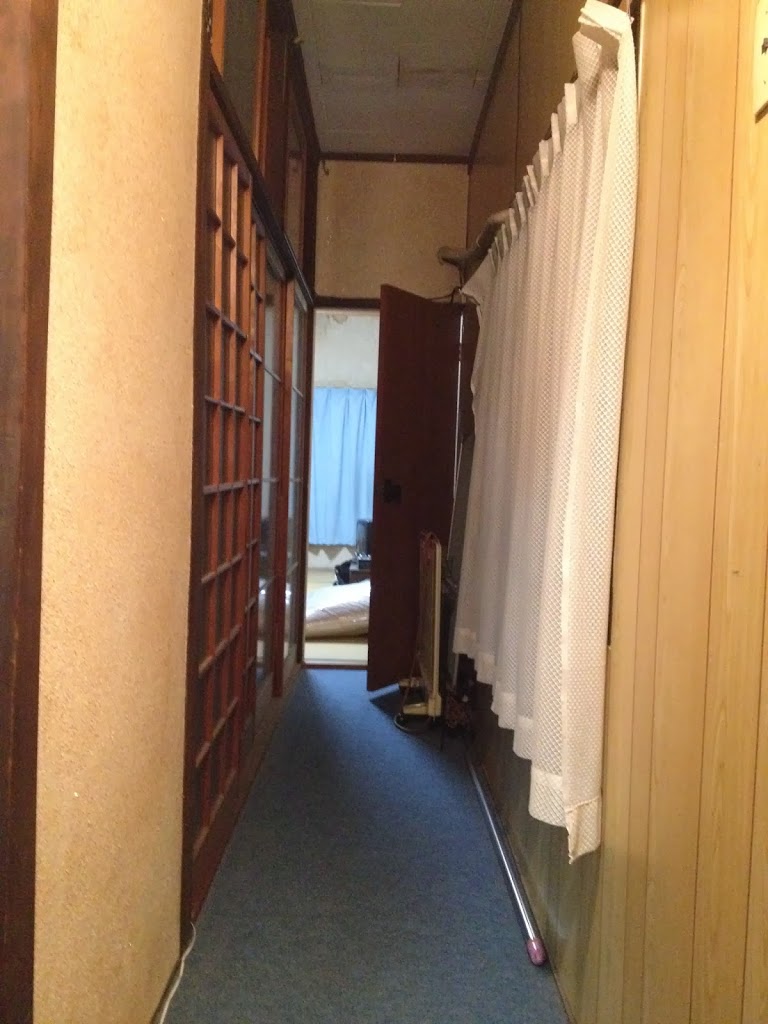 |
| (Photo tilted for Galleon simulation purposes…) |
And let me tell you, no one knows how to save space like the Japanese!
Behold the efficient Japanese kitchen…
I asked Mikichan if she is in the habit of eating breakfast in the bath, to which she politely replied in the negative.
“But think of the time you’d save!” I remarked.
Despite her laughter, I doubt she’ll go for it.
Too bad.
At Mikichan’s place, the toilet is one of those crazy old-school models embedded in the floor in a tiny little room.
When the time comes, this will prove an interesting challenge.
 |
| And of course, don’t forget the crapper slippers. |
Luckily, Mikichan provided me with some non-crapper slippers to keep me covered in those places which stand between the entrance and the commode.
 |
| Gotta love that snug, Japanese fit. |
We freshened up with tea, after which Mikichan brought us to the house of a fellow artist, Konishi-San.
Though a jewelry artist by trade, Konishi-San and his wife run a small cafe.
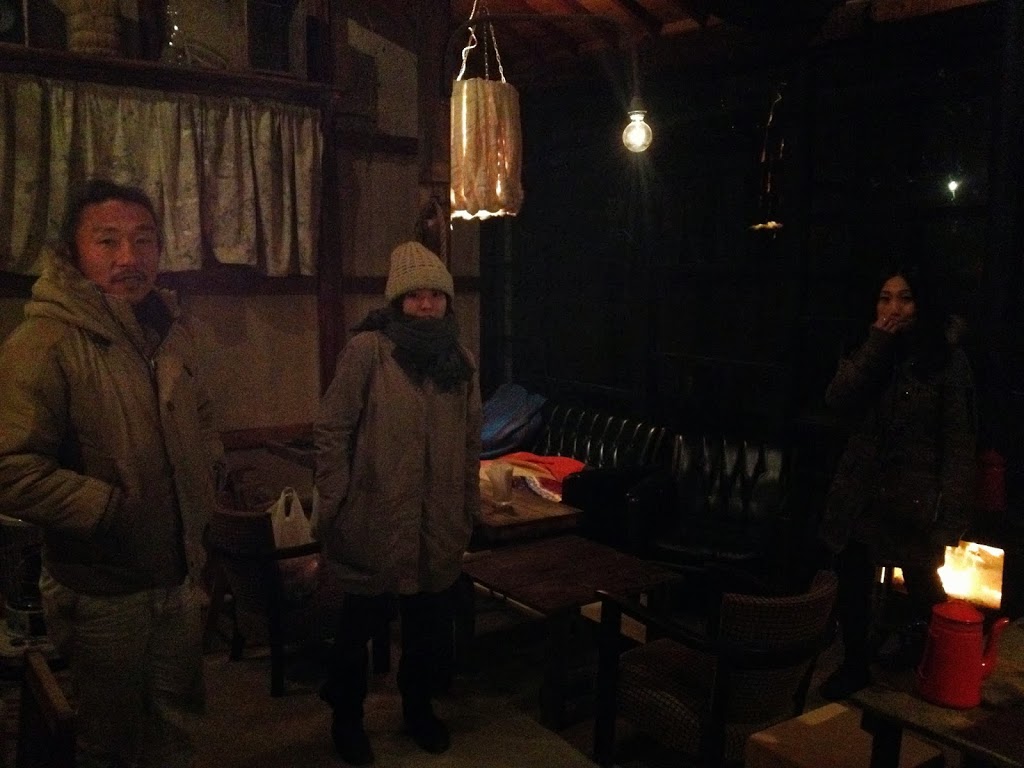 |
| (Konishi-San, Mikichan, and Hisachan.) |
The cafe was technically closed for the holidays, but they opened it up just for us.
As we indulged in delicious hot beverages, Konishi-San noticed that I was taking an interest in his Shogi board—and then taught me how to play.
For those not in the know, Shogi is Japanese Chess.
Shogi a lot like normal Chess, only where your captured pieces can at any moment teleport back onto the board as zombies in the service of your merciless enemy. Of course, you can zombie up their pieces too, so the whole game is kind of a giant chaotic clusterfuck of turn-based strategy, and constant paranoia.
It’s wonderful.
I actually almost beat him, but we ran out of time.
Not surprisingly, Hisachan was more interested in Konishi-San’s jewelry making.
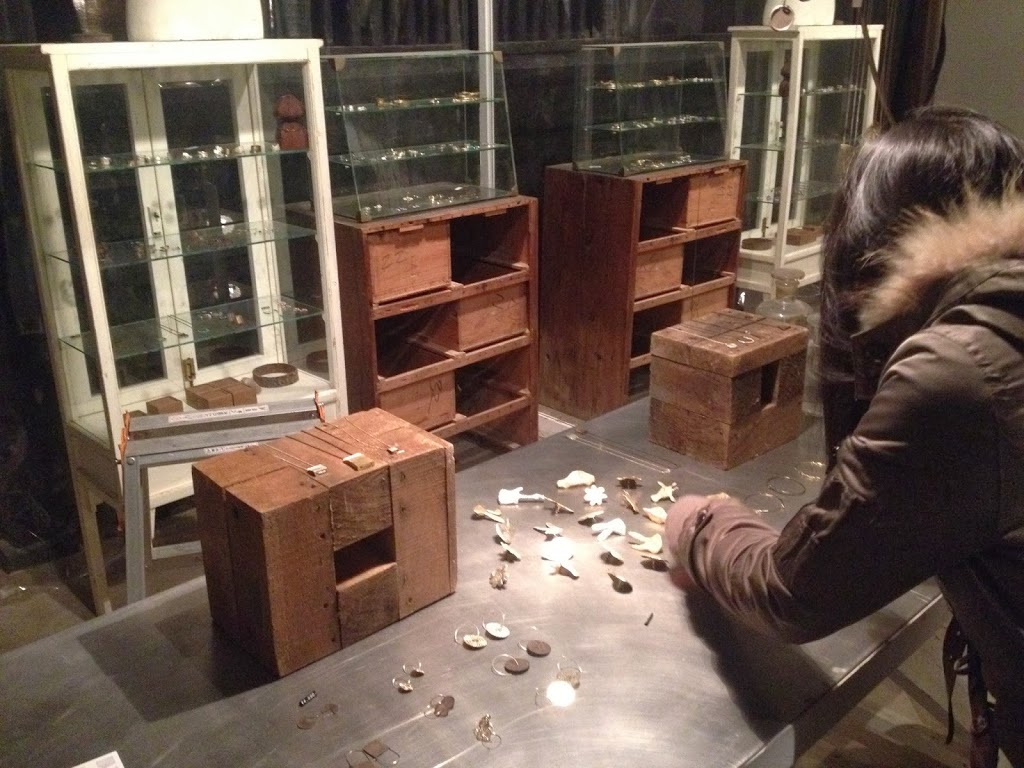 |
| Maybe she thinks they’re Shogi pieces… |
After our adventures in her friend’s cafe, we returned to Mikichan’s place, and rolled out our futons for the night.
Japanese hospitality is all about martyrdom—silent, sequestered martyrdom that you just sort of suffer through alone.
It’s a point of cultural pride.
But if you make a big deal about it, or mention it in any way, you fail. (As Hisachan and I came to deduce, for the two nights we stayed Mikichan was actually bedding down under her kotatsu in the other room.)
Mikichan’s place is a quaint countryside home, and we felt just like a couple of country cats.
Only we decided to eat tea instead of butt.
It was a good choice.
In accordance with roughin’ it countryside style, the bedding accouterments were sparse, so Hisachan and I decided to use our coats as pillows.
And we both slept peacefully all night long.

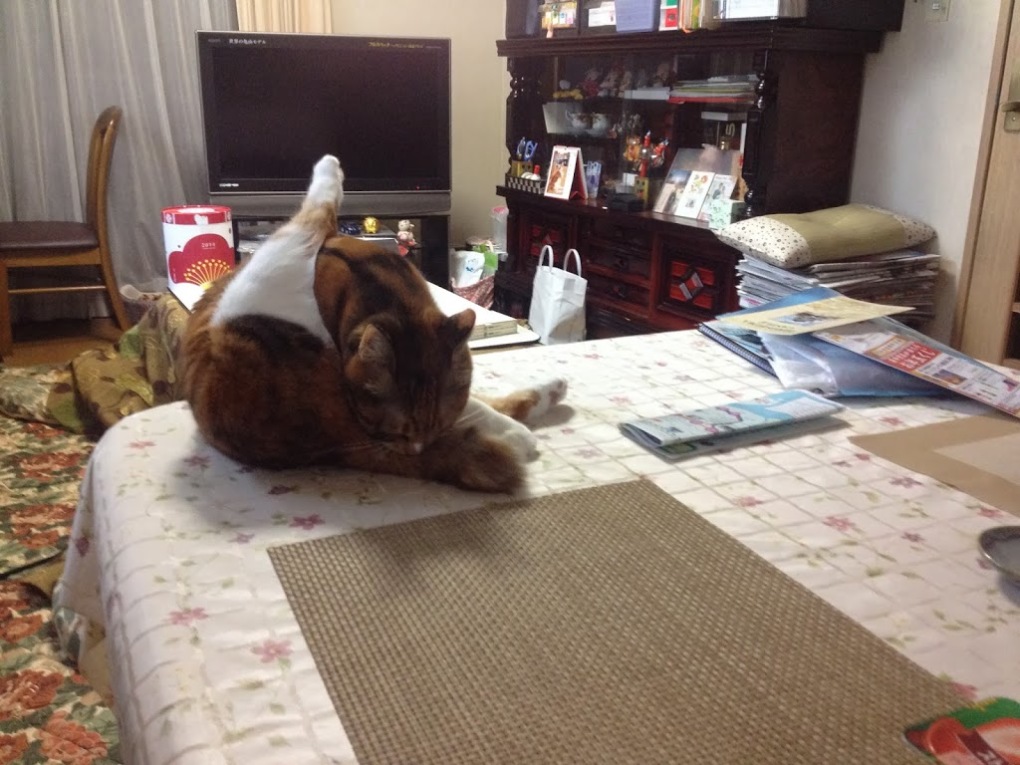
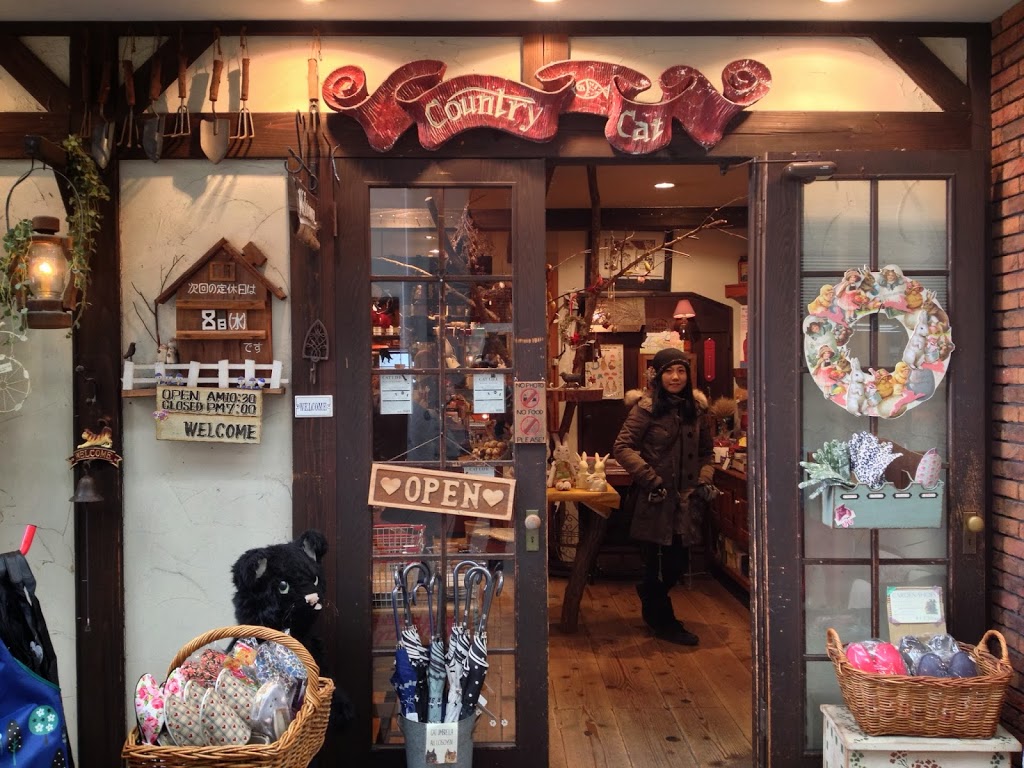


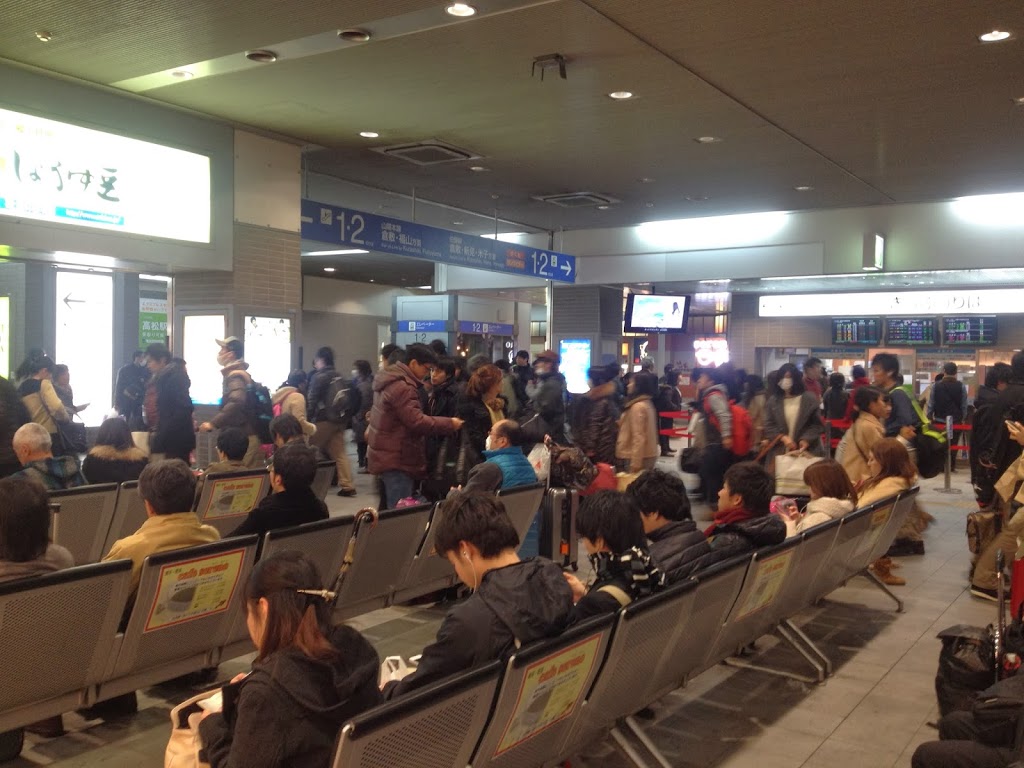
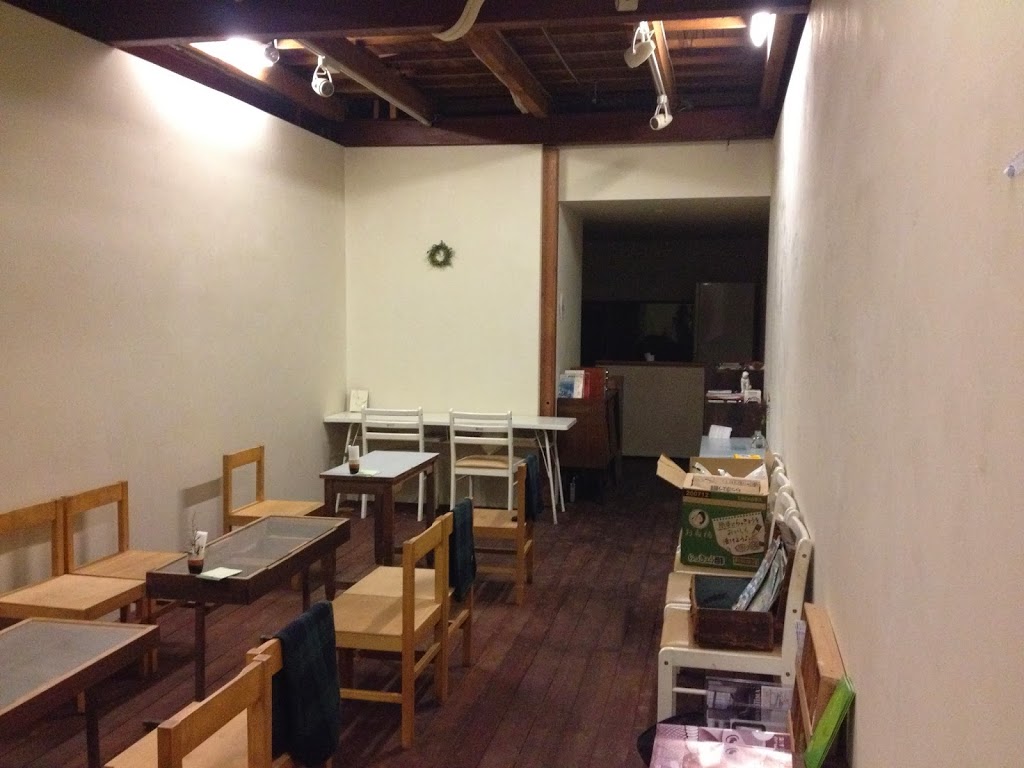
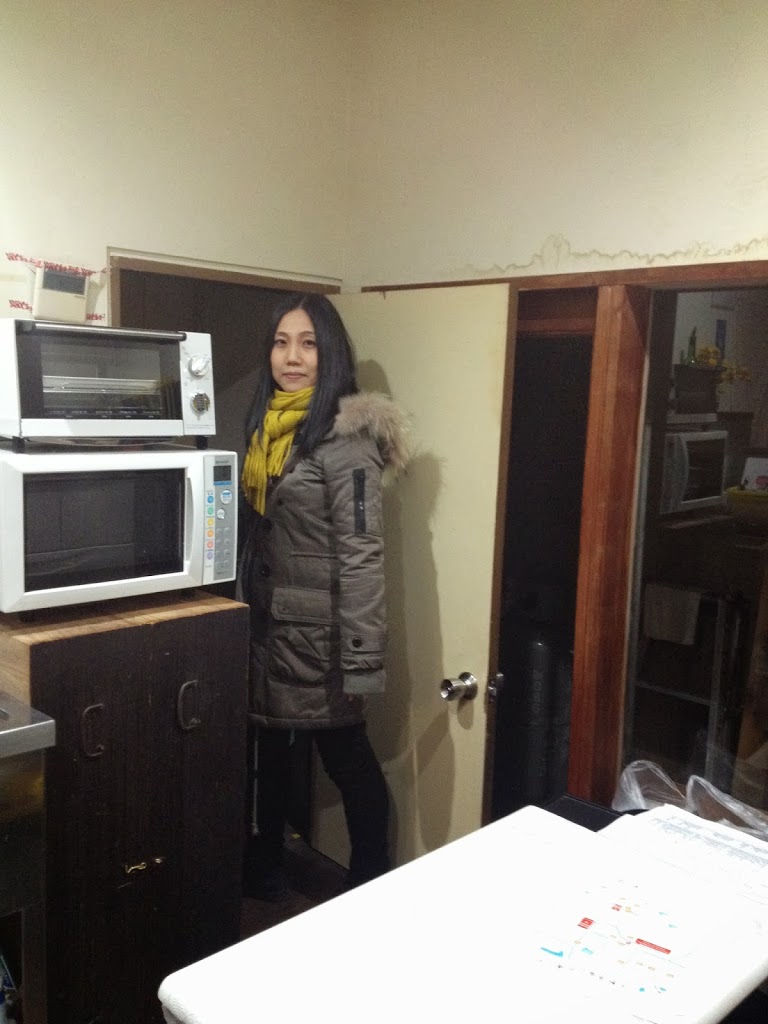
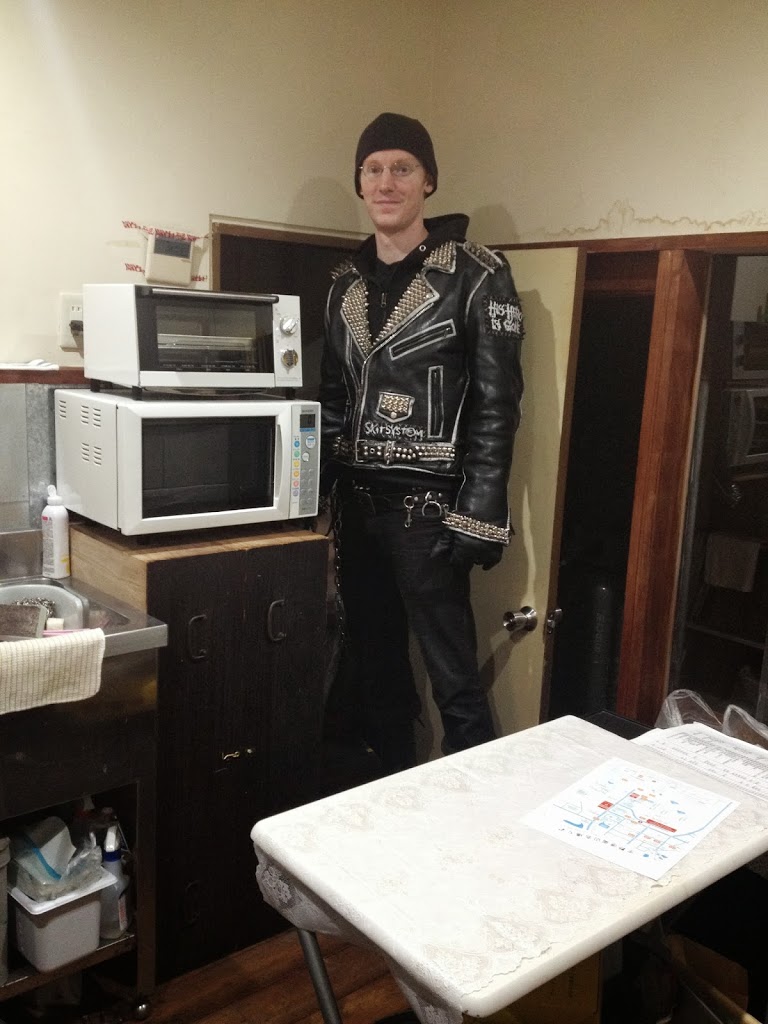

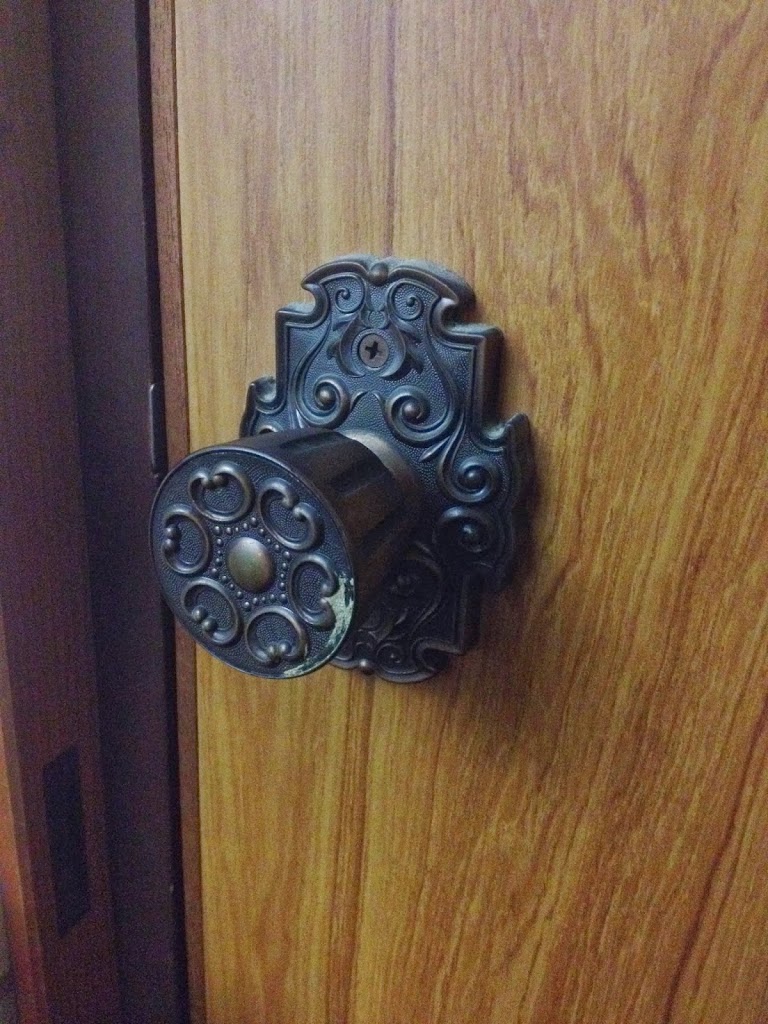
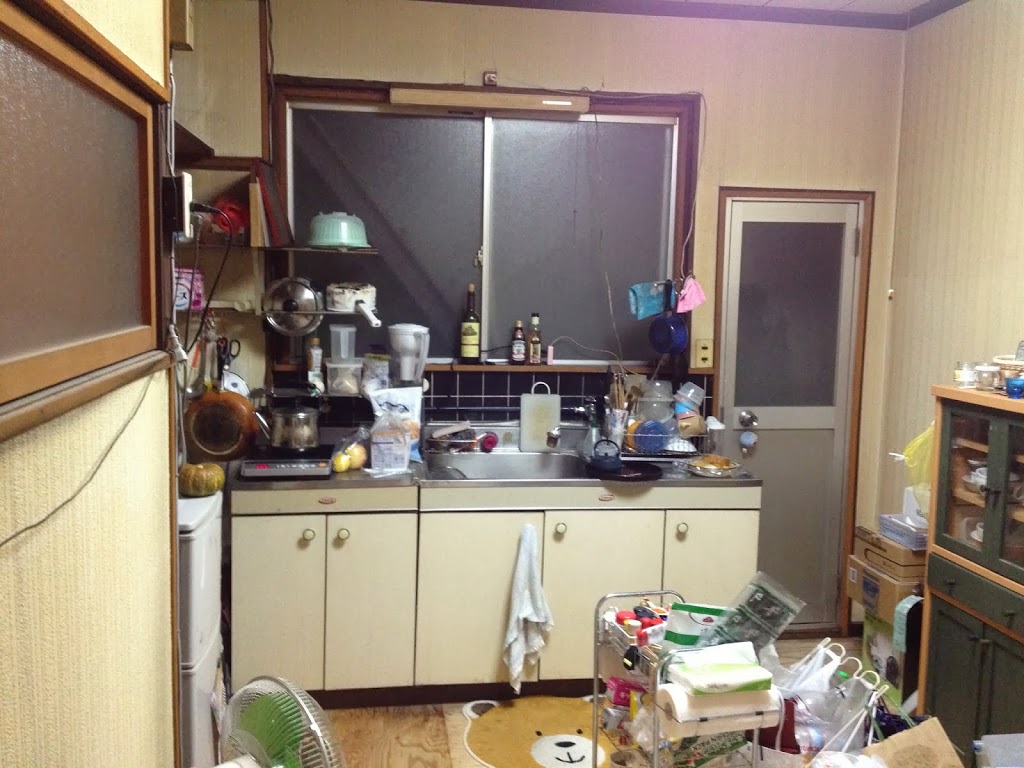
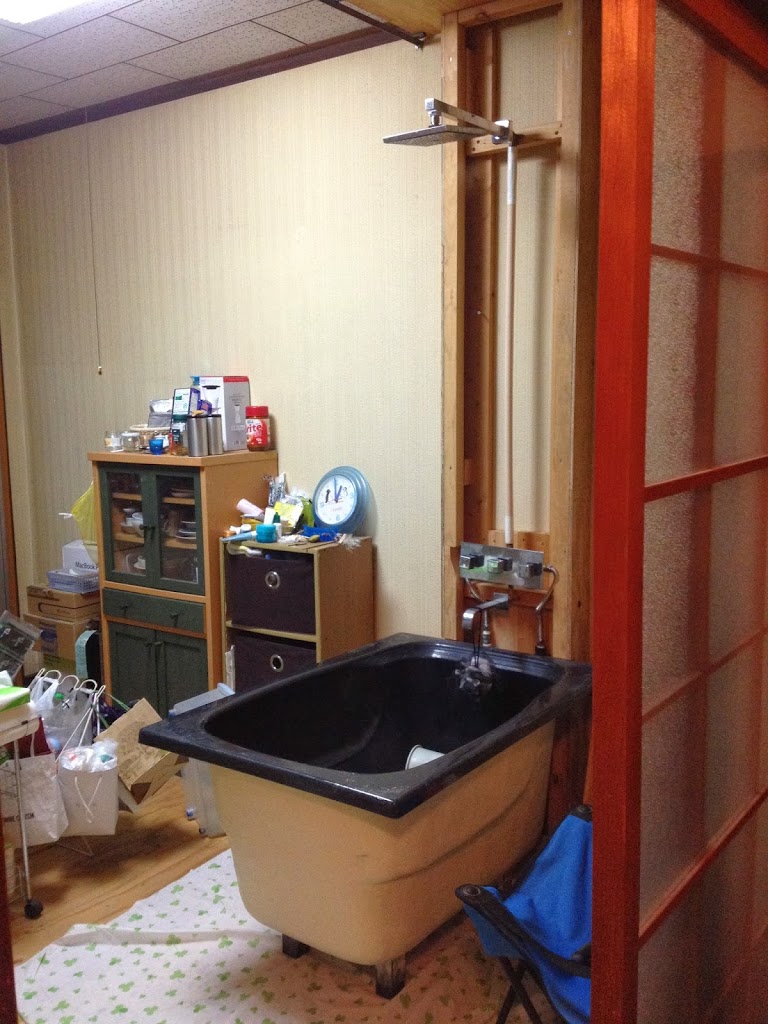
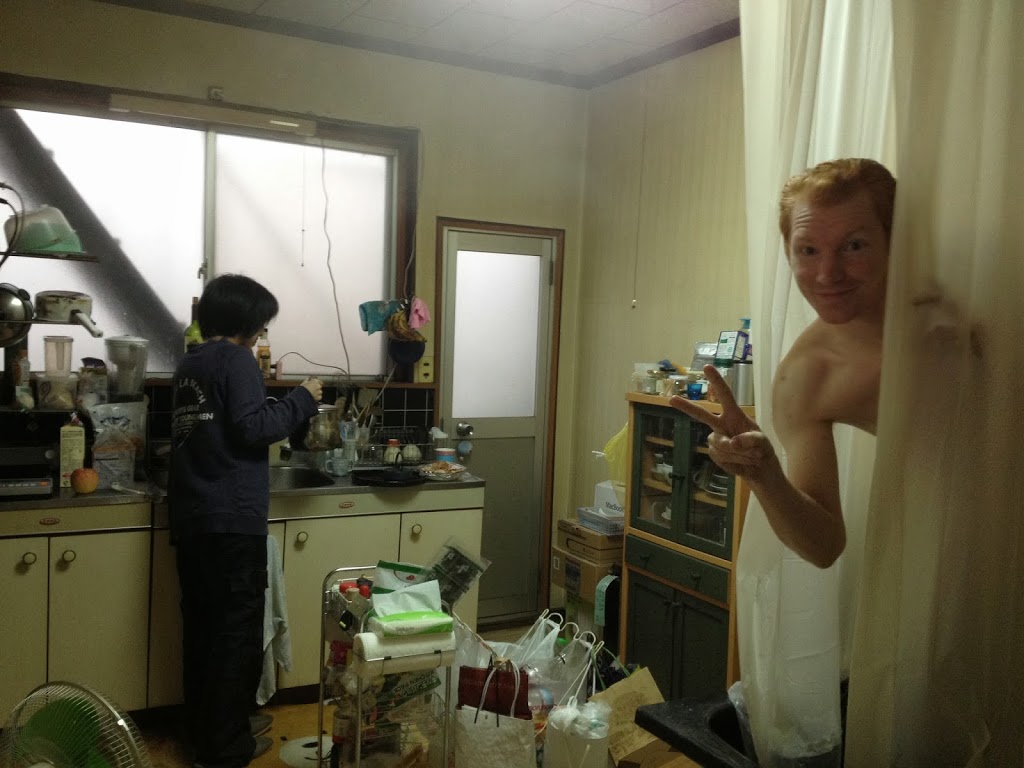
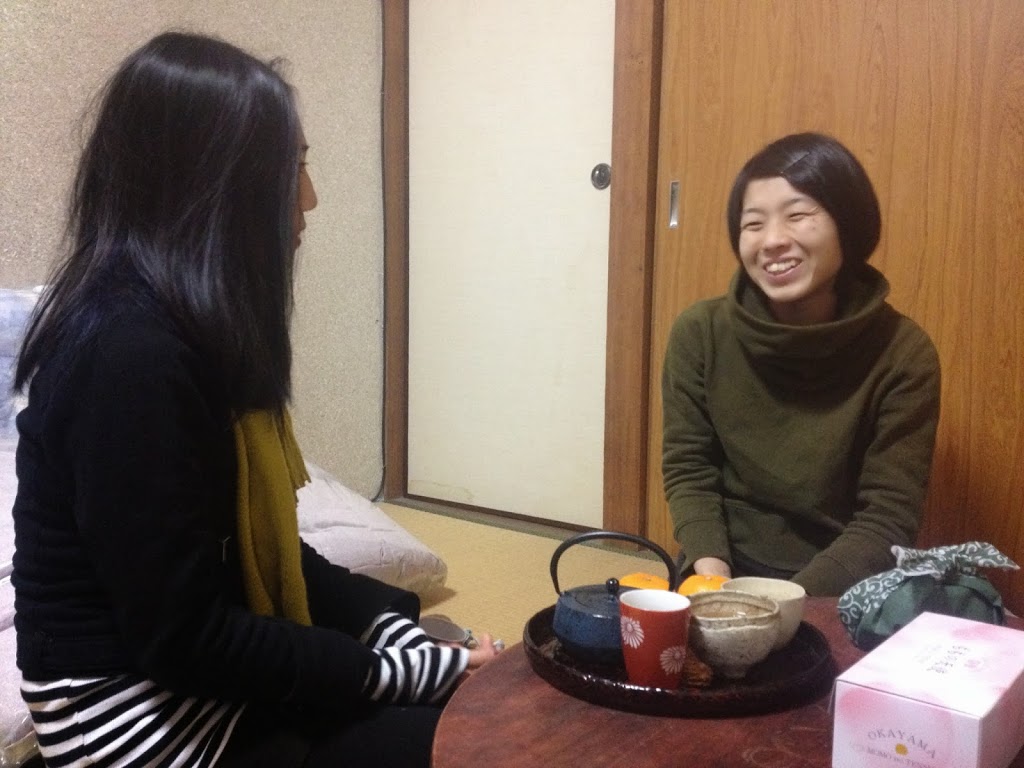
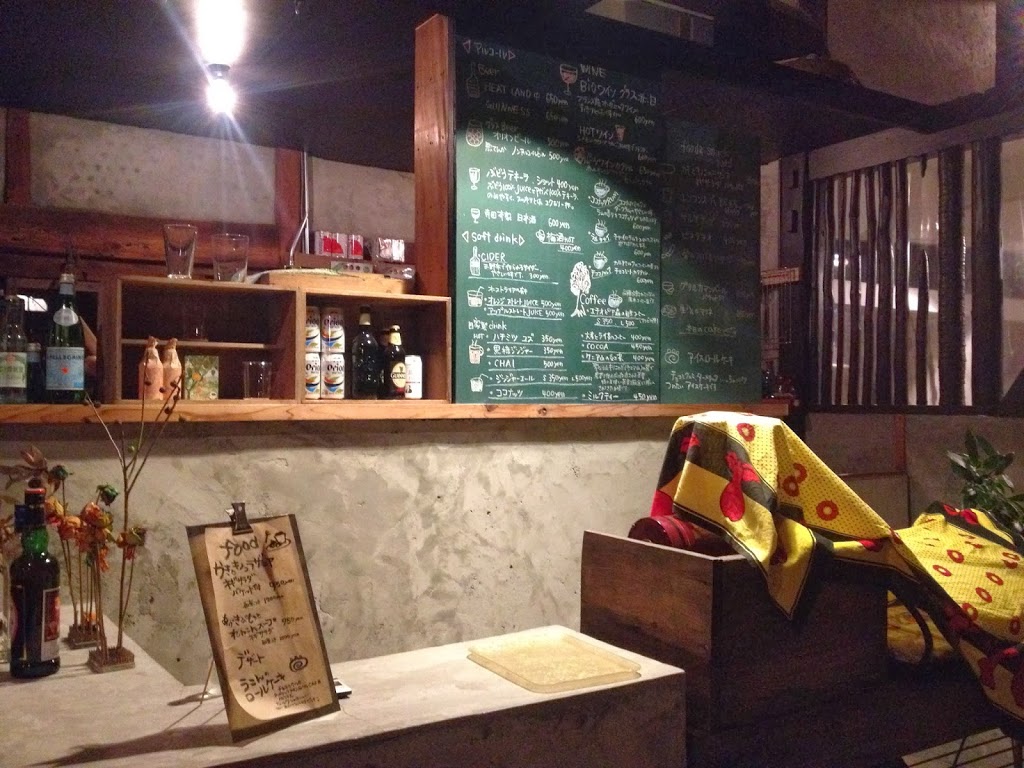
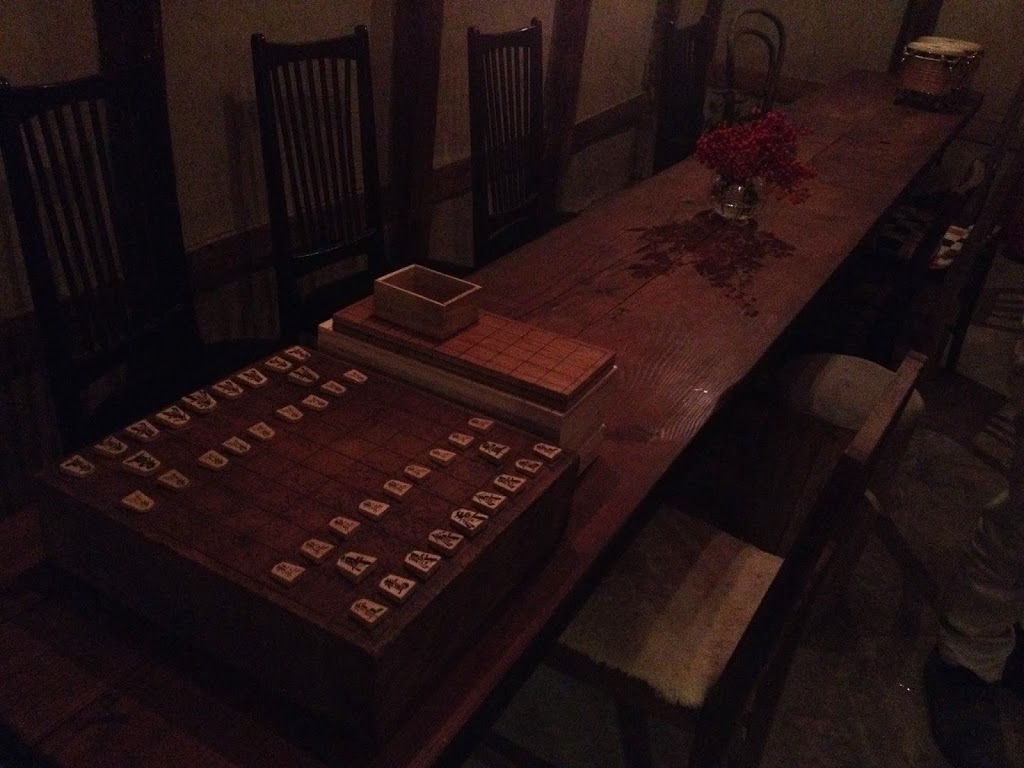
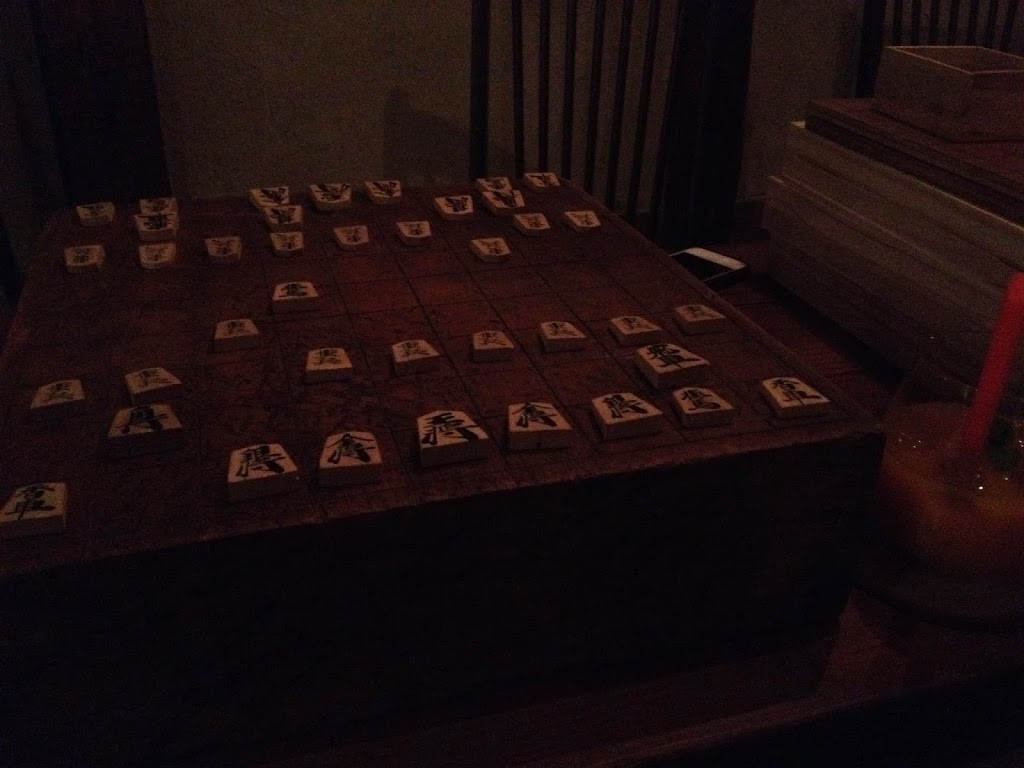
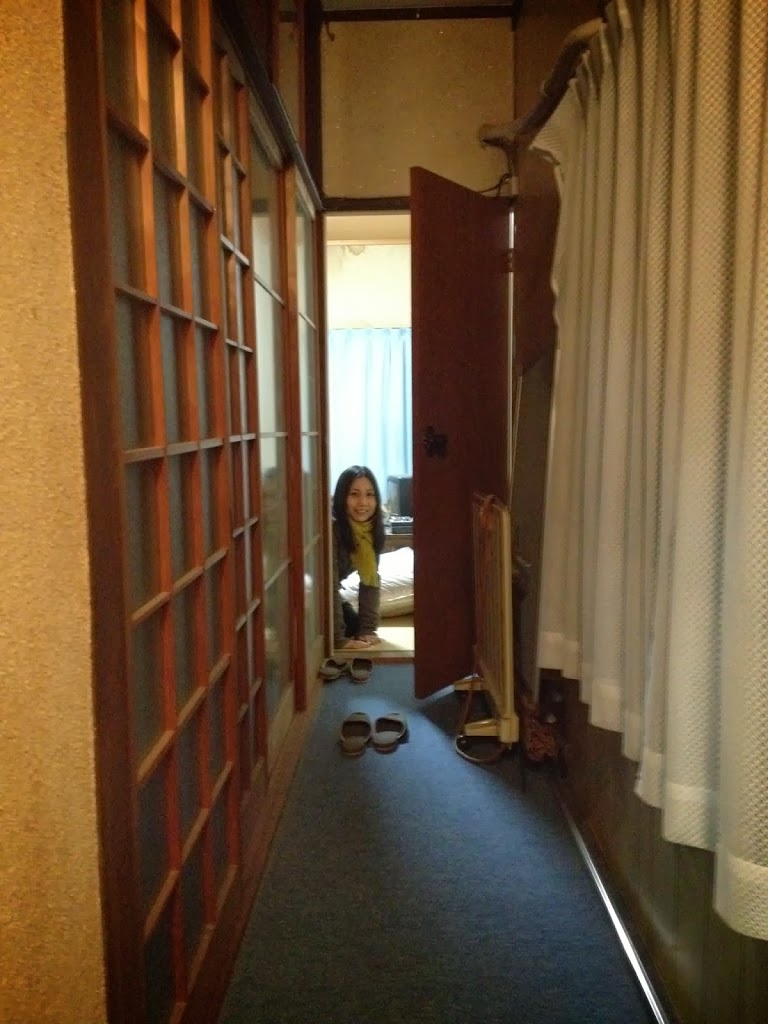

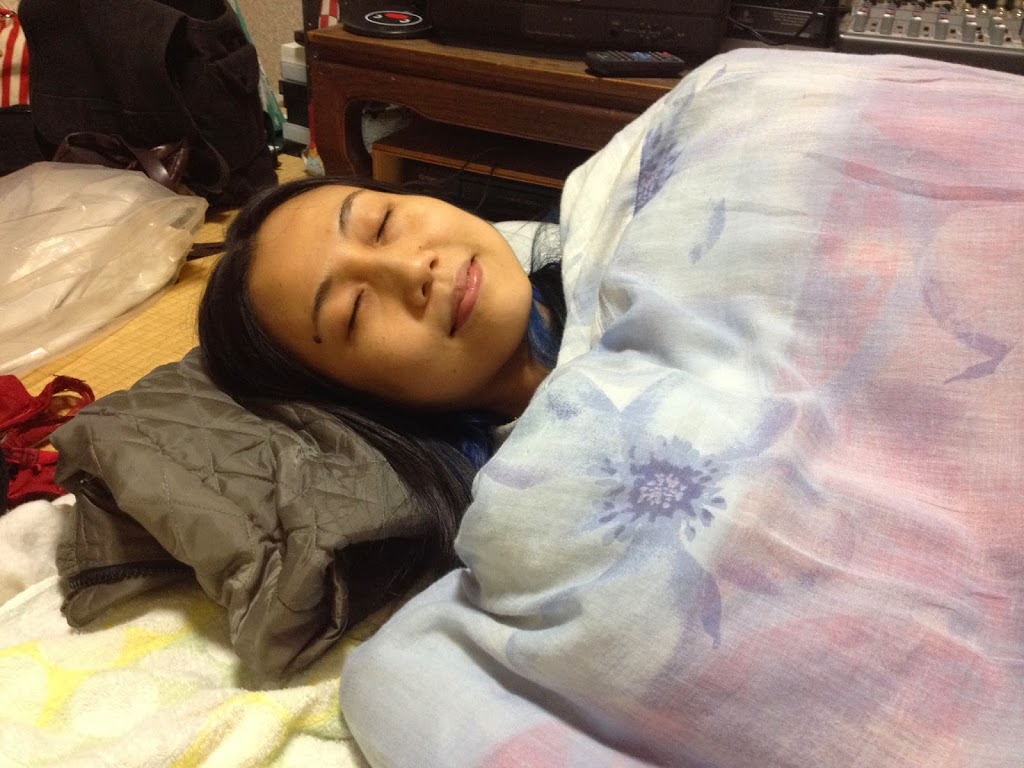
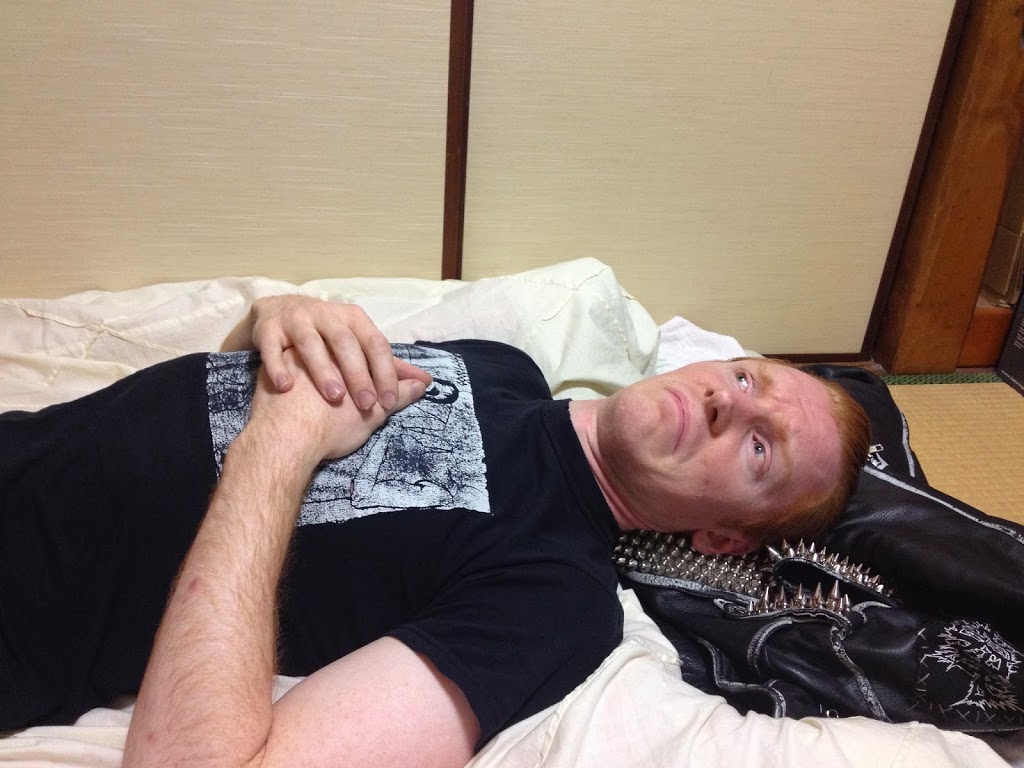
0 comments on “Country Cats” Add yours →